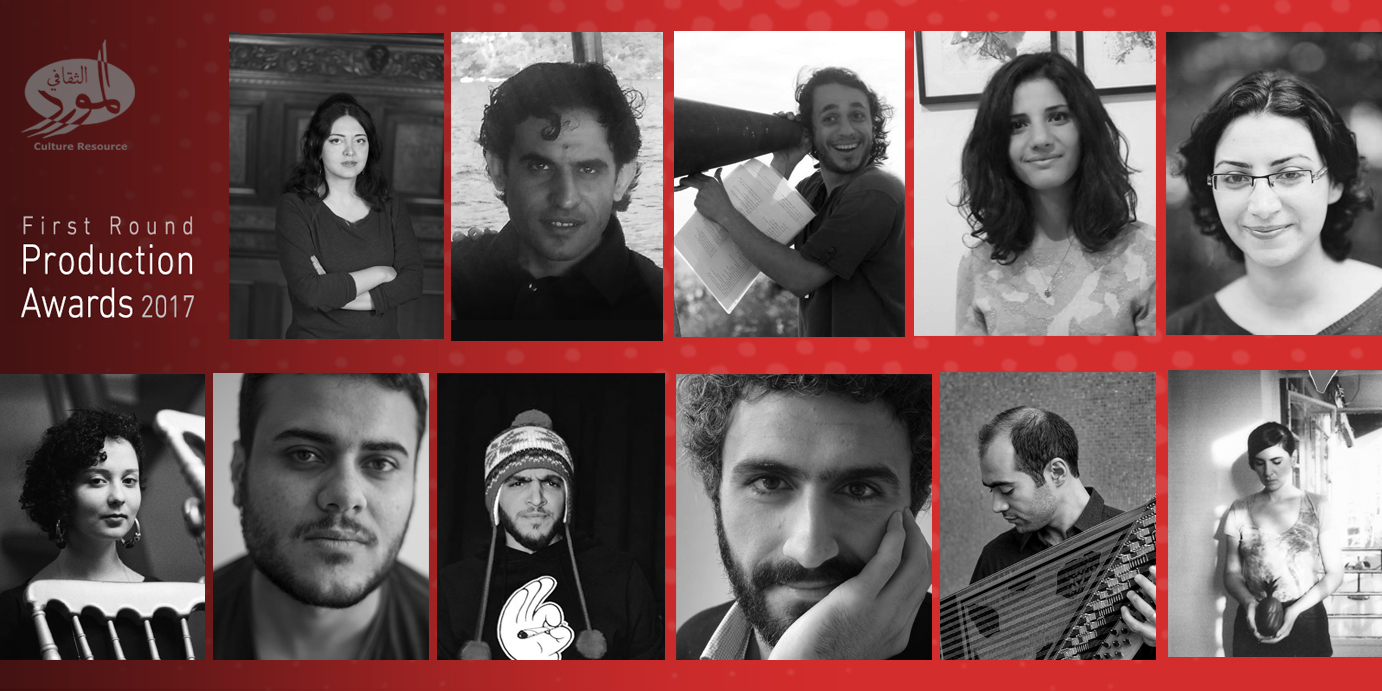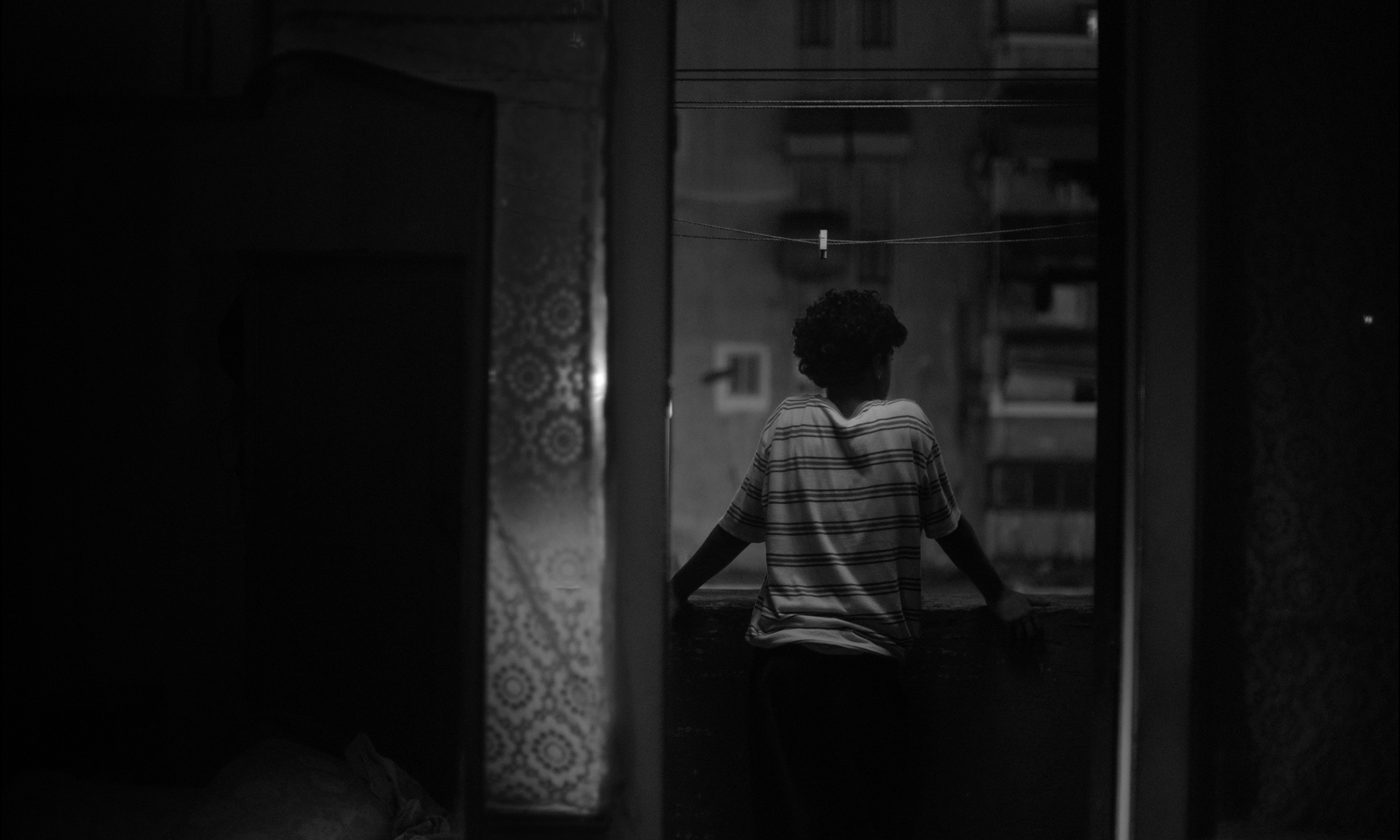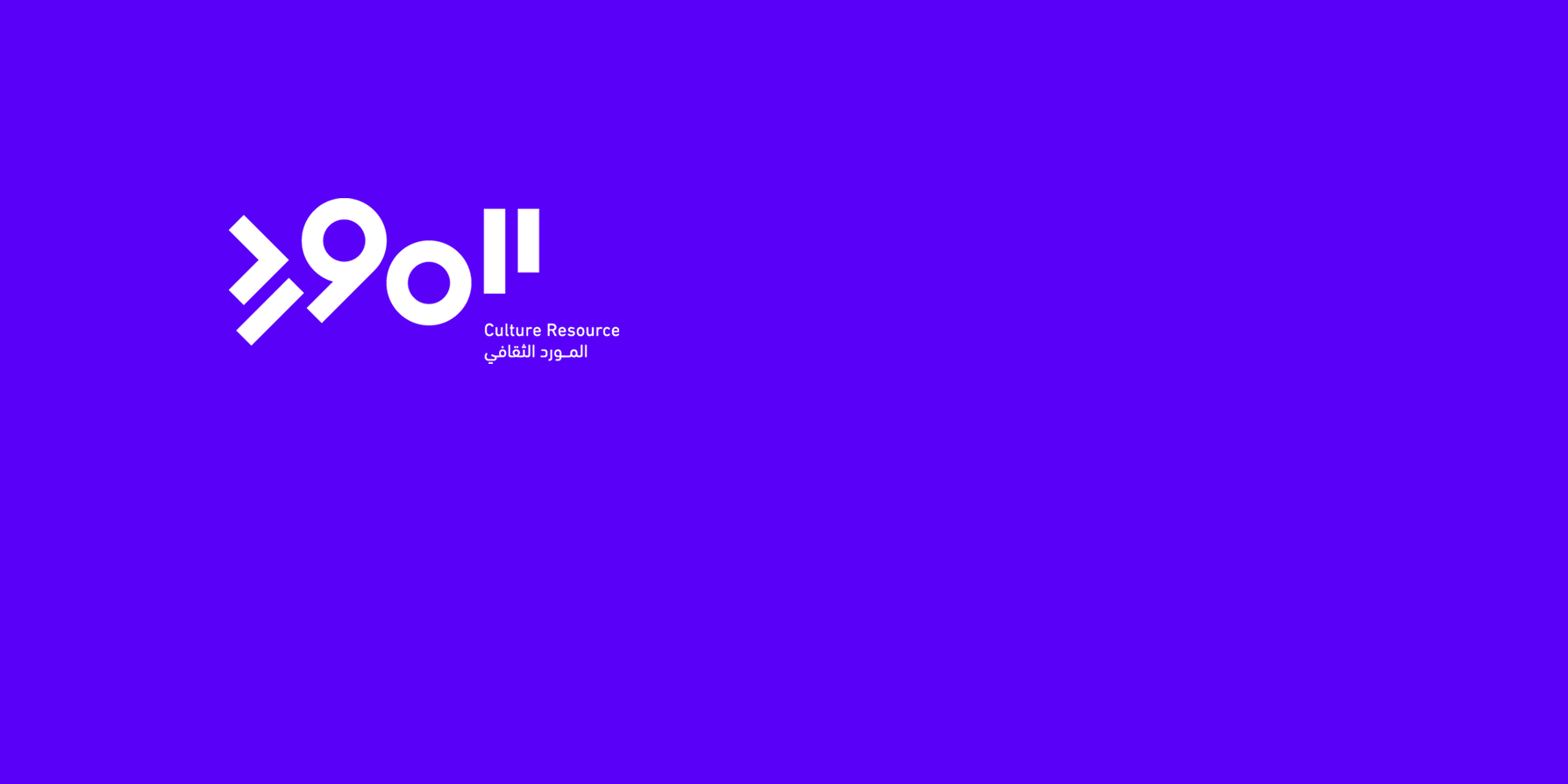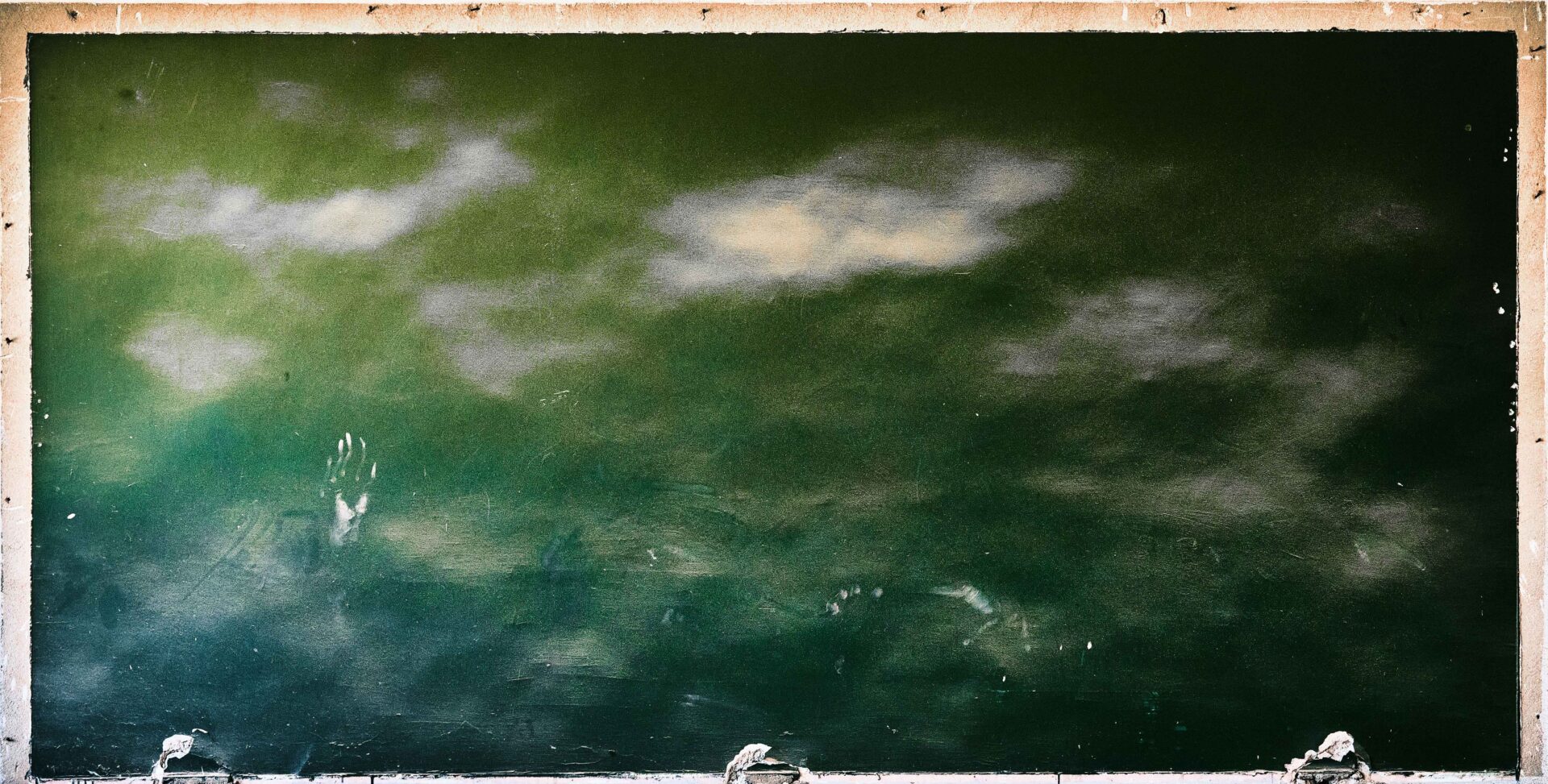Culture Resource is pleased to announce the grantees of the first round of the Production Awards Program for 2017. The purpose of this programme is to promote and encourage a new generation of Arab artists and writers through support for their projects in literature, music, theatre, visual arts and cinema.
Music
Taoufik Mirkhan, Syria
Project: Broukar
Broukar, a classical Arabic music group founded in 2007, consists of several Syrian musicians who play traditional instruments, such as the qanun, oud, nay, violin and various percussion instruments, as well as a vocalist and a performer of Sufi dervish dance. The project is to record an album to present and document the compositions of the group. The album will come with an accompanying pamphlet providing an extensive account of Syrian musical heritage, including an explanation of maqam (Arabic musical modes), traditional musical genres and the principles of instrumental, vocal and Mevlevi Sufi dance performance.
Yazen Tamim “Al Asli”, Syria
Project: Album “Fa’el”
A musical album in which the narrator addresses his existential self and discusses the memories that have accompanied him and continue to haunt him from certain stages of his life in different places. This is the idea that inspired “Fa’el” in which “Al Asli”, a Syrian rapper/musician, searches for and tries to contribute to shaping that common human self that aspires to liberation, challenges the ways that the individual is induced to violence and reduced to obedience, and seeks to soar beyond all current bounds. The lyrics combine sensations, perceptions and narrative into a carefully constructed oral flow. Visual effects using 3-D technology will be added in a live performance to introduce the album.
Theatre
Hashem Adnan, Lebanon
Project: The Unfinished Works of Kevork Kassarian
Hashem Adnan received a grant to produce the project Complete Works of Kevork Kassarian for Fadi Tawfiq as a multimedia theatrical performance (acting, performance, sound design, and video) staged in a gallery that will remain open to the public during and outside performance times. The exhibition, itself, will display the complete works of a previously unknown filmmaker, Kevork Kassarian, who was discovered over two decades ago when his archive was unearthed. The archive contains uncompleted cinematic and artistic material that he worked on in Beirut from 1977 to 1993.
Maryam Samaan, Palestine
Project: The Other “I”
The project involves developing new techniques for manufacturing and moving puppets in the course of producing a new set of theatre puppets. Each puppet is to have its own, individual “I” that simulates real personalities, but with an added mix of imagination and fancy. The performance will engage the concept of the “other I” in the interplay between the puppet and puppeteer which will be primarily improvised and address themes such as the hardships of refugee life and the difficulties of readjustment that Syrian people have to contend with. Such challenges expose the human soul and the nature of human values in the midst of the struggle for survival.
Visual Arts
Lara Tabet, Lebanon
Project: Underbelly
Based on “2666” by the Chilean novelist Roberto Bolaño, this photographic and video film project follows an imaginary serial killer in Beirut. In the novel, itself, Bolaño focuses on the murder of 112 women in a Mexican city and the fruitless police investigations into these murders, generating an impression of a city infested by a pervasive evil. This project shifts the geographical setting to Beirut and to the city’s suburbs and outskirts, in particular, and proposes an image of the city at nighttime, portrayed by means of a fictional narrative of unsolved murders.
Ghitha Skali, Morocco
Project: Remedy by Authority
The project addresses how Arab regimes try to acquire scientific legitimacy without having a real scientific base. State propaganda serves to cover up an illusory progress in medical and scientific breakthroughs and inventions which, in reality, are political inventions. Ghita will introduce these modern imaginary inventions using sculpture, movement performance, printed material and video film.
Cinema
Maysoon El Masry, Egypt
Project: Shop-windows of Love
A documentary film that explores the lives of sex workers and how they perceive, through their own words, their profession and their relationship with their environment and community. The project will approach its subject matter through the “love lens” whereby the individuals in the film relate their personal tales of love and romance.
Mohannad Amin, Libya
Project: Prisoner and Warden
Two protagonists will feature in this short film, one a key official in the former Libyan regime, the other one of the most prominent figures in the post-revolutionary period in Libya. Through these two characters we discover the circumstances surrounding one of the most influential events in modern Libyan history: The Abu Salim Prison massacre in which more than 1,200 political prisoners were killed in the space of a few hours. The film shifts between past and present through the two protagonists who exchange the role of victim. Most of the events and dialogue are cited from books or from the testimonies of former prisoners and wardens.
Literature
Aboud Said, Syria
Project: Sacred Metal
A novel about “Bou Hussein”, a former prisoner and now the owner of a blacksmith workshop who is obsessed with metals and fascinated by all that is rare and dangerous. His obsession drives him to learn the composition of every sort of metal and how to manipulate them, a process which leads him to the discovery of the sacred metal: red mercury. He believes that a single gram of this substance will bring him fame and immortality when he presents it to the prince of genies. The hope dissipates when his city come under bombardment.
Rasha Abbas, Syria
Project: Seven of Cups (working title)
“Seven of Cups” is the name of a Tarot card that signifies a susceptibility to illusion. The novel follows the trail of a Syrian diplomat who had served at the time of the United Arab Republic but fled to West Germany when the republic broke up in order to forge a new life for himself. However, as dementia set in and then death, a large chunk of his story got lost. A grandson of the diplomat embarks on the search for this lost story and, in the process, he comes across signs similar to those in Tarot cards.
Saleem Al Beik, Palestine
Project: Charlotte, Reema and Melanie (working title)
The novel tells the story of a young man from the Mar Elias refugee camp in Beirut who meets a young woman from Haifa, Palestine, in Paris. Through their relationship and conversations, the novel transmits the significance of Haifa to each of the characters. The aim of the novel is to convey the contradictory ideas and feelings of Palestinians who come from the same city through the medium of a literary aesthetic informed by human sentiments, frailties and strengths, but that refuses to indulge in sentimentality or melodrama. The story unfolds in the context of the relationship between the protagonist from Mar Elias and Reema and her two friends Charlotte and Melanie.
Jury members:
Music:
Kinan Azmeh, clarinettist and composer (Syria)
Huda Asfour, oud and qanoun player and composer (Palestine)
Mustafa Said, oud player and composer (Egypt)
Theatre:
Meriam Bousselmi, theatre director, playwright and lecturer in theatre studies (Tunisia)
Omar Abi Azar, theatre director and founding member of Zoukak Theater Company (Lebanon)
Iman Ezzeldin, Professor at the Department of Drama and Theatre Criticism at Ain Shams University (Egypt)
Visual Arts:
Adila Laïdi-Hanieh, writer and academic specialized in cultural practices and spaces (Palestine)
Mohamed Omran, visual artist (Syria)
Nadim Kufi, visual artist (Iraq)
Cinema:
Kaouther Ben Hania, filmmaker and actress (Tunisia)
Tamer El Said, filmmaker (Egypt)
Hala al-Abdallah, filmmaker (Syria)
Literature:
Rasha al-Ameer, novelist and publisher (Lebanon)
Sahar El Mougy, novelist and storyteller (Egypt)
Yassine Adnane, poet and cultural journalist (Morocco)





